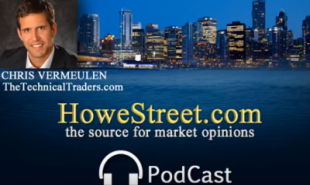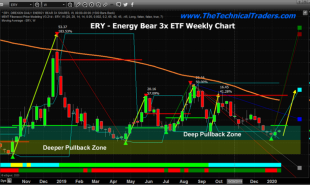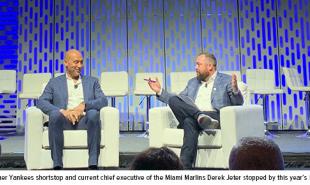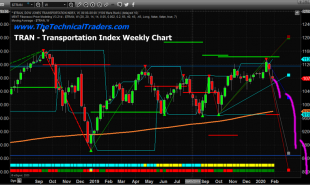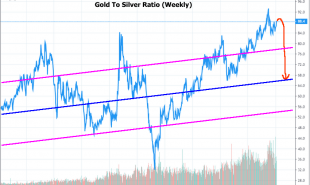
Via the excellent Matt Levine
A thing that apparently happens a lot, or at least used to happen a lot, is that bond traders lie to their customers about the price that they paid for bonds, in order to induce the customers to pay more for the bonds. "Ugh, it is killing me to sell you these bonds at 77, I paid 76.99 for them, I'm barely making any money," the bond trader will say, even though she really bought the bonds for like 74 and is making tons of money. You can tell that this happens a lot because the traders keepgetting arrested, or sued by the Securities and Exchange Commission, or at least fined by the Financial Industry Regulatory Authority.
It happens so much, in fact, that the customers are catching on. Yesterday the SEC brought civil charges against the former heads of Nomura's commercial mortgage-backed securities desk, James Im and Kee Chan. On one trade, Chan allegedly told a customer("Trader B") that he had bid 51-05 for some bonds and ended up buying them at 52, and that he would sell them to the customer for 52 plus an additional spread to compensate him for the work. (He had actually paid 51-01.) The customer agreed, but grumbled:
Expressing a concern that Investment Manager B would now be overpaying for the bond by paying Nomura "on top" of 52, Trader B responded: "cool ... i bet the 51-05 was already good ... u want some of it? Feel like we got smoked on this one." Showing again the importance to their negotiations of the bid price information misrepresented by Chan, Trader B went on to say that his partner wanted to modify the trade, stating to Chan: "between u and me basically [Trader B's partner] is certain u made up that u bid 51-05 already in order to get us to bid."
They were "certain" that Chan "made up" his bid! They knew that he was lying, but they paid him anyway. The SEC cites this as evidence that Chan's lies were material to the customer, but it sounds a bit like the reverse: It sounds like Chan's customers grudgingly accepted that they were in a used-car-dealing world in which dealers lie about their profit margins, and there wasn't much they could do about it. "im trying to get paid a scrap," Chan told a counterparty in another trade, sounding like a stereotype of a used car dealer. The customers may not have taken this sort of hyperbole all that seriously. They traded mortgage bonds all day; they perhaps had an inkling that some of the traders were lying.
On the other hand, they did ask, and Chan put them off by doing this:
A short while later, Chan sent an email to Trader B purportedly forwarding an earlier internal Nomura email from Chan that seemed to corroborate Chan's 51-05 bid. The email forwarded by Chan was a fake. In fact, Chan fabricated the phony email from an actual email that he had sent internally earlier in the day, altering the bid price from 51-01, which appeared in the actual email, to 51-05, the price that Chan told Trader B he had bid for the bond.
Where have I seen that before? Jesse Litvak, the former Jefferies LLC managing director who was the first person prosecuted for this sort of thing, was convicted of lying to customers and sentenced to two years in prison, but then had his conviction reversed on appeal and sent back for a new trial where he could argue to a jury that everyone lies to customers so it's no big deal. So he did, and he mostly convinced the jury -- except that they were bothered that he had altered a chat transcript to make his lies to a customer more convincing, and convicted him of fraud for that. He was re-sentenced to the same two years in prison. Meanwhile, Chan settled with the SEC for about $214,000 in fines and disgorgement (and a three-year industry ban), without admitting or denying the charges; Im is fighting the charges.
Incidentally, I say "bond traders lie to their customers," but all of the cases so far are about mortgage-backed securities. (Residential mortgages for Litvak, and most of the others so far; commercial mortgages here.) Corporate bond traders don't lie to their customers about how much they paid for bonds, or at least they don't get in trouble for it. There's a reason for that, and it's not the innate honesty of corporate bond traders. It's that corporate bond trades in the U.S. are generally reported to Finra's TRACE system, so their prices are publicly available. If a dealer buys a corporate bond for 50 and then tells a customer that she paid 52, the customer can just look on TRACE to see that she's lying. So you don't see a lot of lying, or successful lying anyway.
Meanwhile in commercial mortgage-backed securities, anything goes. The SEC's press release says that "Im and Chan operated under cover of an opaque CMBS secondary market to gain illegal trading profits," but the word "opaque" here pretty much just means "not TRACE eligible." If bond dealers were required to publicly report the prices of CMBS trades, then they'd have no opportunity to lie about them. You get the sense that that's what the SEC wants. But actually doing the notice-and-comment rulemaking for post-trade transparency in the CMBS market would be a complicated endeavor for the SEC. It's easier to do the rulemaking by enforcement, to mandate honesty by suing a few traders instead of mandating transparency with a rule.
Read more by Soren K.Group



